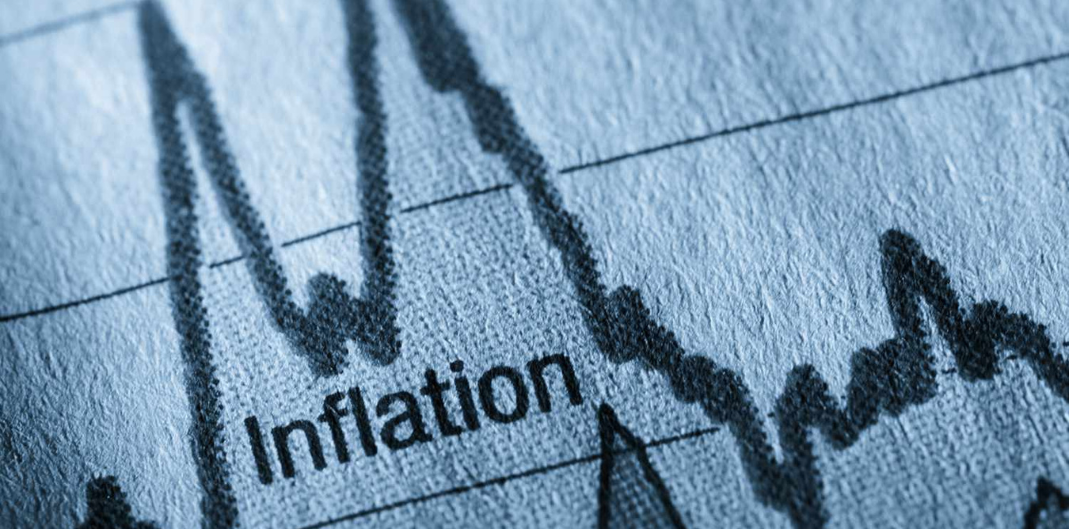- Reading time: 5 mins 57 secs
Introduction
A worldwide increase in inflation began in mid-2021. Many countries saw their highest inflation rates in decades.
In the UK, inflation reached a 40-year high of 10.1% in July 2022. This was driven by higher food prices, and then higher energy bills.
At time of writing, inflation is running at just under 7%.
There were various contributing factors to the rise – the Covid-19 pandemic. Economic downturns. Supply chain problems. Then Russia’s invasion of Ukraine in 2022.
It all led to historic and broad supply shortages. This included microchip shortages and energy shortages. The effect on global oil prices. Natural gas, fertilizer, and food prices further exacerbated the situation. Higher petrol prices were a major contributor to inflation, even though oil producers saw record profits! Construction sectors were also hit.
All this amid increasing consumer demand.
Inflation has been persistently high across major economies over the past year. This prompted central banks to aggressively raise interest rates in efforts to rein it in.
All well and good. But these actions have significant impact on asset prices like stocks and cryptocurrencies.
In this article, we explain the relationship between inflation, interest rates, and asset prices and how this affects investments.
What is Inflation?
Inflation refers to the rate at which prices for goods and services increase over time. When inflation is high, money loses purchasing power as prices outpace income growth.
There are various factors that can cause inflation to rise. These include high consumer demand, supply chain constraints, and slack monetary policy.
BECOME FINANCIALLY
INDEPENDENT TODAY
Why Inflation Can Be So Devastating
The word “inflation” causes almost instant panic to nearly everyone all over the world. That’s because inflation erodes spending power over time. Rising prices mean money loses value.
When inflation is high, the cost of goods and services increases.
Meanwhile, income growth usually lags behind this rise in prices. This means people’s money doesn’t go as far.
For example, if inflation is running at 5% annually, and your income rises by only 2%, your real purchasing power is eroded. While you may have slightly more money, prices are rising even faster, so your ability to buy things is diminished.
This is especially noticeable on big money items. In essence, inflation acts like a tax on money itself.
High inflation chips away at household budgets and people’s financial security.
This is why central banks aim to keep inflation low, stable and predictable. Otherwise, rising prices mean our money is able to buy fewer and fewer things.
How Central Banks Tackle Inflation
It’s the job of central banks to combat inflation whenever it arises.
To do this, they use one of their most powerful tools – interest rate hikes.
Raising rates increases the cost of borrowing money, making it more expensive for consumers and businesses to spend and invest.
This cools economic demand and gradually suppresses inflation.
Yet, sharply higher interest rates have pronounced effects on financial markets. The knock-on effects investments and asset prices.
(Check these stock market courses and crypto courses for more).
For example, the Federal Reserve raises its base interest rate. As a result, interest rates on credit cards, mortgages, and auto loans tend to rise in tandem.
This increased cost of borrowing money makes people save more and spend less.
Businesses also cut back on investment and expansion plans as borrowing money becomes more expensive. Higher interest rates cool demand across the economy as spending declines.
This helps slow economic growth, putting downward pressure on prices.
In essence, high interest rates limits the flow of money through the economy, dampening demand. It is hoped that in time, inflation will ease.
However, the medicine of rate hikes must be carefully measured.
If central banks raise rates too fast or too high, it risks plunging the economy into recession. But leaving rates too low for too long risks runaway inflation spiralling out of control.
It’s a delicate balancing act for policymakers.
How Do Interest Rates Impact Stocks?
Interest rates have a big impact on stocks. In effect, it draws money out of stocks.
It also reduces the value of future company earnings.
In other words, higher rates make safer fixed-income investments like bonds more attractive to investors.
But it also triggers uncertainty and panic selling among investors, further driving down prices. Less demand for stocks drives prices lower.
In addition, higher rates impact the valuation of stocks.
Stocks are valued based on expectations of future company earnings and cash flows. The present value of those future earnings decreases when interest rates go up.
As a result, stock valuations and prices decline.
How Does Higher Interest Rates Impact Cryptos?
Cryptocurrencies also feel the sting of rate hikes. That’s because cash and low-risk bonds start yielding higher guaranteed returns. Investors might then view speculative assets like Bitcoin less favourably.
Spiking interest rates reduces the appetite for risk. Major selloffs of cryptos ensue.
Rising rates also tends to spark greater volatility in the crypto space.
Crypto becomes less appealing when low-risk savings offer higher risk-free returns.
Prolonged High Inflation Weighs on Consumer Spending
Prolonged high inflation adds further pressure on stocks by eroding consumer spending power over time.
As household budgets get squeezed by inflated costs, corporate revenues and earnings take a hit too. With future profits expected to decrease, stocks trade lower.
As households spend more on essentials like food, gas, and rent, they have less discretionary income available. For instance, making investments.
Over time, these strained household budgets lead to lower revenues for many companies. Especially in sectors like retail, travel, and entertainment.
Declining company earnings and weaker profit growth outlooks negatively impact stock valuations. Stocks are valued based on expectations of future cash flows and profits.
If inflation stays elevated for long periods, earnings usually stagnate or decline. That leads to the present value and prices of stocks also falling.
Lower expected profits in effect reduces the fundamental value of the stock.
The Investor Perspective
Investors aim to predict influences on portfolio returns when making investment choices. Inflation stands out as a key factor affecting portfolio performance.
Stocks could theoretically cushion inflation’s blow since company revenues and profits may eventually rise with inflation.
However, inflation’s uneven impact on stocks tends to heighten equity market volatility and risk premiums. Historically, high inflation correlates with lower equity returns.
When inflation runs high, value stocks typically outperform growth stocks.
However, growth stocks tend to deliver superior returns compared to value stocks during periods of low inflation.
A value stock refers to a stock that is trading at a lower price relative to its fundamentals and is considered undervalued by the market.
Here are some key characteristics of value stocks:
Low valuation metrics
Value stocks have the following ratios. Low price-to-earnings (P/E). Price-to-book (P/B). Price-to-sales (P/S). That’s compared to growth stocks or the overall market.
Below-average growth prospects
Value stocks tend to have slower earnings growth and lower projected growth rates than the market average. The focus is more on current valuations rather than future growth potential.
Higher dividend yields
Mature value companies often pay out higher and consistent dividends compared to growth companies that reinvest earnings.
Beaten down prices
Value stocks are often out of favour or overlooked by the market. This causes their share prices to decline making them appear undervalued.
Defensive nature
Value stocks belong to stable industries like consumer staples and utilities that hold up better during market declines.
Some examples of traditional value stocks:
- Financial
- Energy
- Utility
- Manufacturing
Value investing is a popular strategy that involves picking value stocks trading below their intrinsic values.
Conclusion
When inflation starts rising, central banks raise interest rates to combat the rise.
This action depresses stock and cryptocurrency prices. That’s due to reduced company earnings expectations, risk appetite, and investor demand.
Rising rates and high inflation usually impacts stocks and cryptos until inflation is under control.
For investors, times of higher than normal inflation can be tricky. They need to be at the most alert and wary of market movements.
Knowing about how inflation impacts investments is key for all new investors. If you find inflation to be a confusing or even scary topic, subscribing to IM Insider can help.
Check it out here
As an IM Insider, you can expect:
- Inspiring Selection of Top Educational Material
- Tried & Tested Investment Strategies
- Bi-weekly Newsletters
- Exclusive & Comprehensive Online Training Portal
- Essential Investing Tools
- Live Weekly Investing Market Updates
- Private IM Insider Facebook Group
Just click here to get started
And be sure to download our handy Money Management Calculator here



